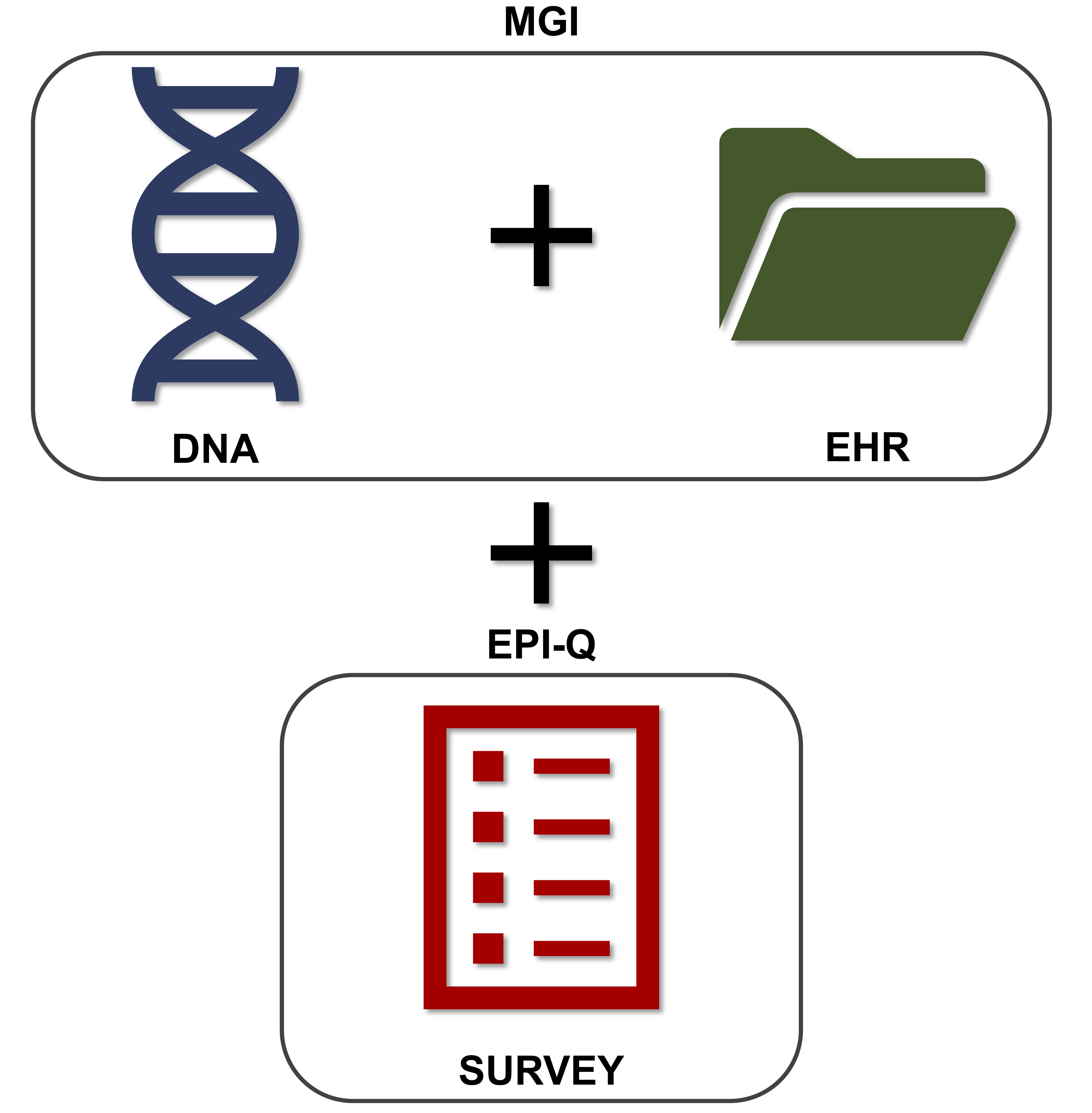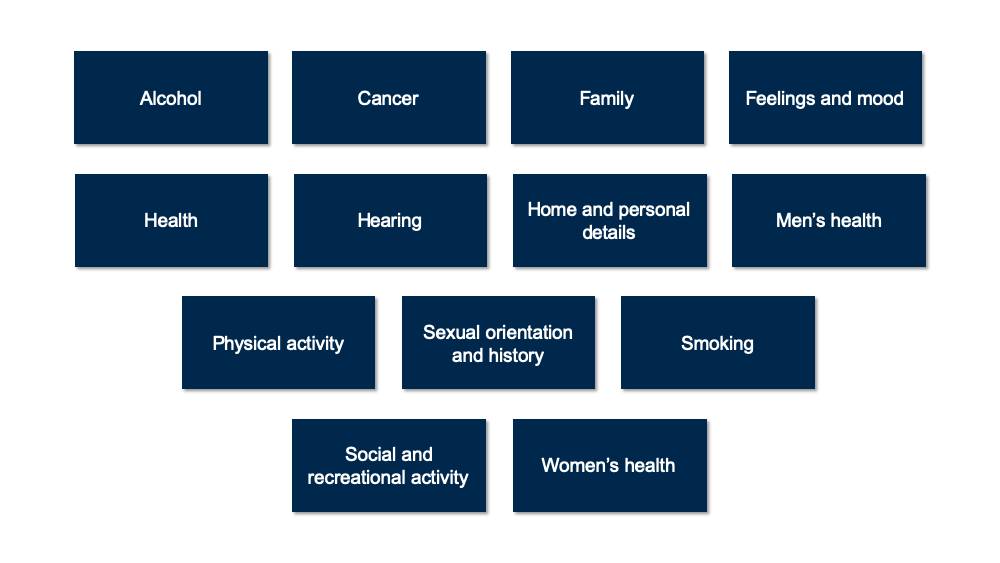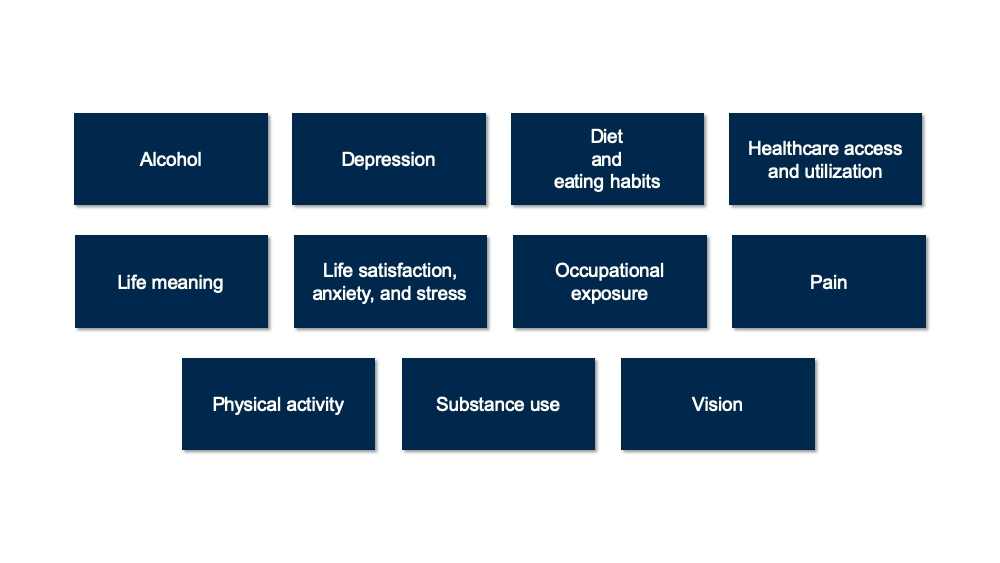About EPI-Q
The Michigan Genomics Initiative (MGI) Epidemiological Questionnaire (or EPI-Q; HUM00155782) is a survey study at the University of Michigan that aims to collect a lot of health-related data. The EPI-Q study builds on the Michigan Genomics Initiative (or MGI). Individiuals who are enrolled in MGI have already provided access to their Electronic Health Records (EHR) and donated biospecimen for DNA data. However, health-related survey data can go a long way towards filling in information gaps that are important in being able to do research. The EPI-Q study seeks to fill this gap.

The addition of survey data to complement the DNA and EHR data will make MGI one of the largest and most comprehensive datasets of its kind. Many important health-related discoveries can be made including identifying individuals at risk for diseases and conditions, finding new uses for existing drugs, and preventing and treating complex illnesses.
The EPI-Q study has two parts: a baseline survey and optional modules. The baseline survey covers topics ranging from alcohol use and smoking habits to physical activity and family health. It takes about 30 minutes to complete and for those that complete it, they can choose to receive a free simple, 16-region ancestry analysis using DNA they have already provided through their participation in MGI. Read more on incentives here.
BASELINE TOPICS

After completing the baseline, participants are invited to complete additional optional moduless. The baseline survey and optional modules can be completed electronically via a mobile application or computer at any time. As with all survey research, we hope participants answer as many questions as possible. Your participation will help many peoples’ lives for years to come.
OPTIONAL TOPICS

*Recruitment efforts have ended*
Study Sponsors:


